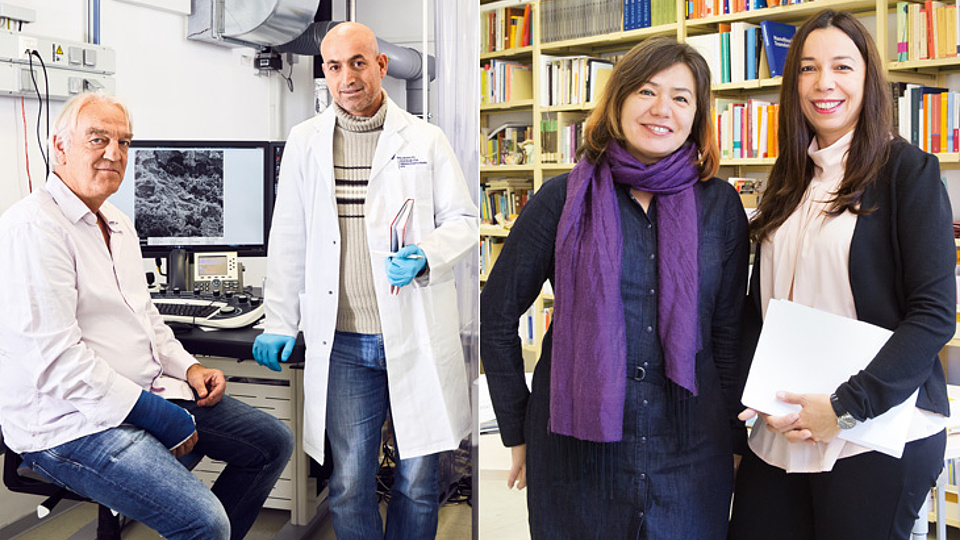Jump to the content
- {{#headlines}}
- {{title}} {{/headlines}}
The Philipp Schwartz Initiative (PSI) enables universities and other research institutions in Germany to host at-risk foreign researchers who are thus able to continue their research work for an initial period of two years on the strength of Philipp Schwartz Fellowships.
In 2019, Technopolis, the Viennese evaluation agency, evaluated PSI on behalf of the Alexander von Humboldt Foundation. Their final report establishes that the PSI programme goals have been achieved to a high degree. In analogy with the four programme goals, Technopolis came to the following conclusions:
- The institutions create legal, administrative, social and/or research-related structures to facilitate hosting at-risk researchers at German institutions.
- Temporary hosting and integration of at-risk researchers at German institutions has been successful. The fellows have been able to resume their research work. Everyone involved in the project is looking to the period after the fellowship.
- PSI and the Humboldt Foundation’s associated activities have alerted many key actors in the German science system to the situation of at-risk researchers.
- The Humboldt Foundation has managed to establish itself as a key player in the field of at-risk researchers in Germany.
To conduct the evaluation, both qualitative and quantitative methods were used. The evaluation results are based on online surveys of all project leaders, mentors and fellows of the first four selection rounds (May 2016 to August 2018). The study was complemented by numerous interviews both with individuals in the three PSI groups involved (fellows, project leaders, mentors) and with national and international stakeholders in the programme environment as well as those responsible for the programme at the Humboldt Foundation. In addition, some case vignettes were prepared on the spot. A systematic comparison of funding initiatives for at-risk researchers locates PSI in the national and international funding landscape.

